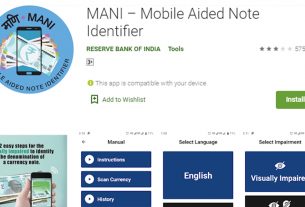While approving credit, experts say that banks can make use of Artificial Intelligence (AI) to analyze and reduce NPAs.
Experts warn that there might be an increase in delinquency following the recent approval of credit through United Payments Interface (UPI) by banks. The credit delinquency rate in the Indian market is already higher than in FY21, with the majority of the credit borrowers belonging to the sub-prime and near prime category.
The Reserve Bank of India (RBI), in its latest Monetary Policy Meeting, permitted the operations of pre-sanctioned credit by banks through UPI. The RBI governor said that this would help reduce the cost of digital offerings. This move was set to help Micro Small Medium Enterprises (MSME) secure quick credit and assist in availing of secured and unsecured lending products like personal and working capital loans.
While this would boost credit liquidity and enable more UPI transactions, experts and banks move with caution as credit delinquency is still a problem in the country. While the delinquency rates are falling from the sudden spike in FY 22, it is still slightly above the levels in FY 21. Reports show that delinquency in the Loans Against Property (LAP) remained the highest. Two-wheeler loans, personal loans, and durable consumer loans also had higher delinquency rates.
Sankhanath Bandyopadhyay, an economist with a credit rating agency said that while this is a boost to the UPI infrastructure, there is a cause for concern in the delinquency levels. “The biggest risk is with unsecured loans. In the absence of any collateral, lending institutions don’t have asset-backed credit, so not sure what is the regulatory framework in this structure, despite admitting the intention is towards incentivizing more digital transactions,” he said.
A regional manager of a Public Sector Bank (PSB) said that with many borrowers in the sub-prime category, credit through UPI is a risk to their loan books. “There will be a recovery problem for sure,” he said. He added that he was very skeptical about its functioning in the banks and that it will take time for banks to start implementing this system.
While this credit facility gives easy availability of credit to the MSMEs, the Non-Performing Assets (NPA) in this sector are already a concern, said Bandyopadhyay.
One in every six borrowers under the Emergency Credit Line Guarantee Scheme (ECLGS) has defaulted on their loans. RBI’s December 2022 Financial Stability Report stated that roughly 17.72 lakh accounts out of the 1.04 crore loan accounts of MSMEs had slipped into the NPA category as of September 2022. “The September 2022 position of the ECLGS lending indicates that distress continues in the MSME sector,” the report said.
People who have been having repayment issues after availing of loans through Buy Now Pay Later (BNPL) companies show apathy towards availing credit through UPI. Ajay Kumaran, who had big credit repayment problems said that he would not get into this just because there is the easy availability of credit. “It is very appealing to avail pre-approved credit, but after getting into a debt trap with BNPL companies, I will not be using this credit facility,” he said.
The PSB official also said that it will be the NBFCs that will be enabling this system at a faster phase than the banks. “It will take time for banks to follow all the due diligence while giving loans, and NBFCs will take lead in the race in giving credit through UPI,” he said. There will be a risk of an increase in delinquencies even when proper due diligence like checking CIBIL scores, KYC, etc., is followed, the official said.
Data shows that the delinquencies levels in the NBFCs remain the highest when compared to public and private banks.
An increase in delinquency levels through a high rate of lending by NBFCs will affect the banks said Bandyopadhyay. “Banks still remain the dominant source of funding for NBFCs, so indirectly, credits extended by NBFCs/other approved Fintech pose Scheduled Commercial Banks’ (SCBs) money into the risk zone,” he said. He added that this is the reason that NBFCs are being treated in the regulatory purview in a similar manner to banks.
However, with a large amount of data available to banks about the previous credit usage of the potential borrowers, delinquency may be avoided, said Kaushik Saha, a fintech analyst. “With the credit behavior under check, the banks can avoid the increase in non-repayment levels,” he said. He also added that the loan books will not be affected in a big way as these will mostly be small-ticket personal loans, and so even if there is a non-repayment, the amount is very small.
Bandyopadhyay said that to avoid increasing delinquencies, banks would have to follow the existing norms until RBI comes up with a specific framework for approving credit through UPI. “Measures like red flagging in early stages, checking creditworthiness, securing collateral if needed, auditors’ credibility for businesses, and other due diligence must be ensured while approving loans,” he said. He also added that banks must make use of Artificial Intelligence (AI) to analyze and reduce NPAs.




